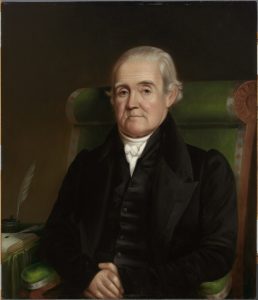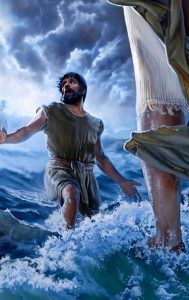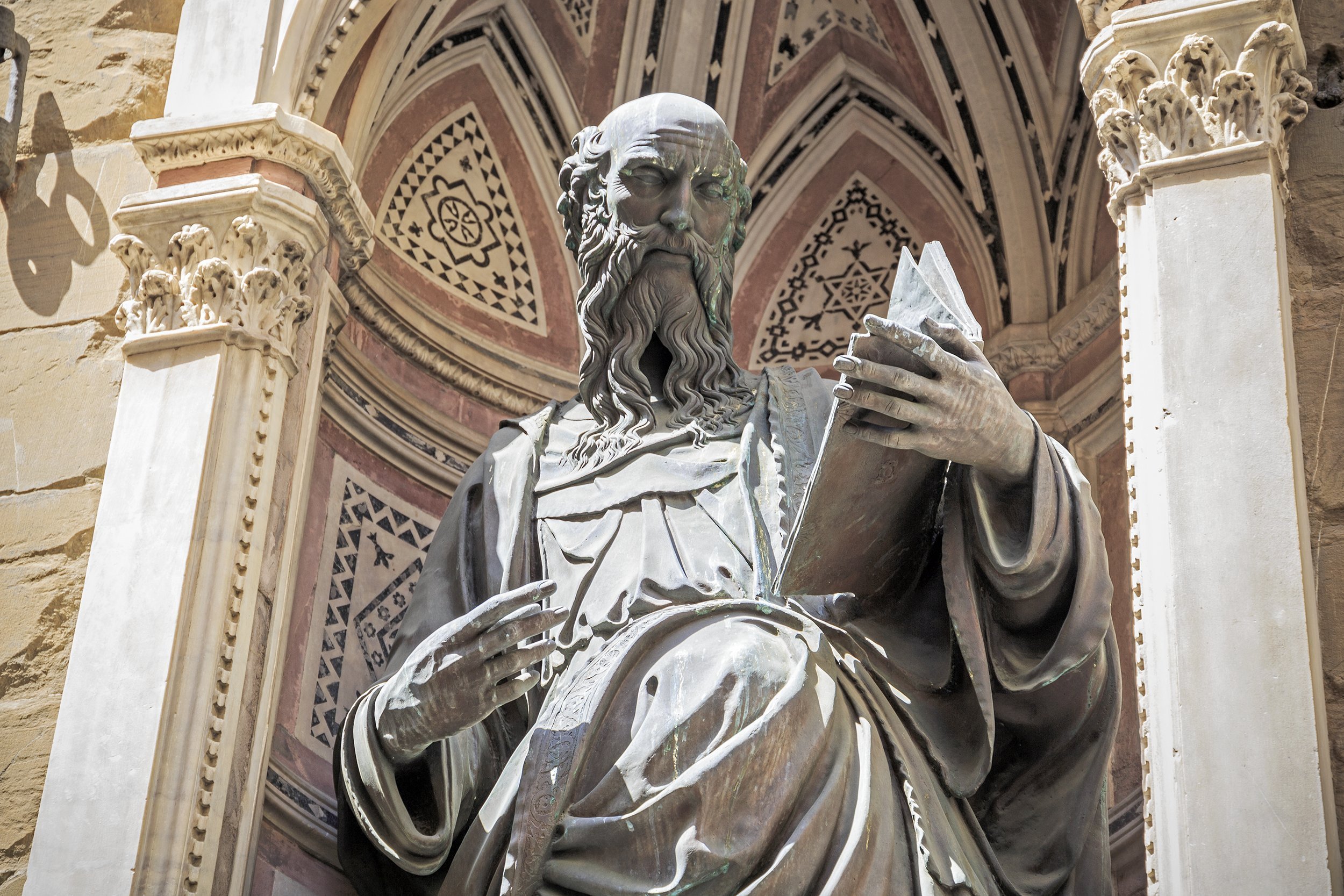
“The LORD your God which goeth before you, He shall fight for you, according to all that He did for you in Egypt before your eyes…” Deuteronomy 1:30
“Have I not commanded thee? Be strong and of a good courage; be not afraid, neither be thou dismayed: for the LORD thy God is with thee whithersoever thou goest.” Joshua 1:9
Since the regenerate, transformed, Christian still battles against the old sin-cursed nature, certain sinful tendencies remain. 1 Even though we are now new creatures in Christ, there are times when these sinful tendencies are made manifest. Obedience is not obtained without a struggle. It is certain, that the new birth of the soul does not eradicate the inward dwelling and working of sin. Spiritually, in our soul existence, we are judicially “the spirits of just men made perfect” 2
Pragmatically, we are in a continuous battle against the lust of the flesh and the wicked workings of the old Adam. In other words, there still exists sin in the believer’s life. Yet, by the indwelling and effectual workings of God the Holy Spirit, those sins never become a dominant force in the life of the true Christian. 3
workings of the old Adam. In other words, there still exists sin in the believer’s life. Yet, by the indwelling and effectual workings of God the Holy Spirit, those sins never become a dominant force in the life of the true Christian. 3
The true saint does not live, nor walk, after the flesh, but lives and walks in the Spirit.4 Neither does he war after the flesh, but by the power of God, his warfare is fought by the indwelling and inward working of God, who worketh in the regenerate soul, both to will and to do of His good pleasure.5
The Word of God is the believer’s delight, and the Law is his lamp and light. The true saint knows that the Law of God is Holy, Just and Good, therefore beneficial for every aspect of life. Anticipating this reality of every believer’s indwelling sin, God cautions His people against falling prey to perhaps one of the greatest anesthetizing sins ever known to man; fear. Fear is a paralyzing sin. It is cousin to doubt and worry.

According to the Scriptures, to worry is to be wavering in faith, and by definition it is sin. Fear stifles faith and fights against all spiritual Wisdom. It is the initiating sin of all failures, and all defeats, and has no place in the life of the Christian saint. Fear is the great adversary of potential victory. Knowing, however, that man is subject to all manner of worldly fears, God commands His people to be strong and of good courage despite those fears.
Godly Fear is coupled with rest, edification, hope and comfort.
“Then had the churches rest throughout all Judaea and Galilee and Samaria, and were edified; and walking in the fear of the Lord, and in the comfort of the Holy Ghost, were multiplied.” (Acts 9:31 AV) 1 See Paul’s discourse on Romans chapter 7. Cf Gal 4:14 2 Hebrews 12;23 and Hebrews 10:14 3 Galatians 5:16-17 4 Romans 8:5-11 5 Phil 2;13
There exists two types of fear.
The first is a fear, which is of God, in reverence and Holy awe toward God, and the other is a fear, which is carnal and selfish. The Lord, upon the regeneration of the soul gives the first as a grace, the latter is born of the fall of Adam. Natural men do not fear God.6
Upon regeneration, God gives the saint the Spirit of Christ, which dominates the natural spirit of man’s fear.
For God hath not given us the spirit of fear; but of power, and of love, and of a sound mind. (2 Timothy 1:7 AV)
For ye have not received the spirit of bondage again to fear; but ye have received the Spirit of adoption, whereby we cry, Abba, Father. (Romans 8:15 AV)
There is no fear in love; but perfect love casteth out fear: because fear hath torment. He that feareth is not made perfect in love. (1 John 4:18 AV)
The resurrection of the soul establishes Godly fear in the heart of the Christian. This is a fundamental principle. When God commands His people not to fear, He is not commanding them to do something they cannot do. Rather, He is commanding them to do something He has prepared them to do.
Through God we shall do valiantly: for he it is that shall tread down our enemies. (Psalms 108:13 AV)
What is Ungodly Fear?
According to the Word of God, fear is defined as dread or terror. It is translated as terrible, to be afraid, dreadful, and reverence. By direct implication, fear means to stand in awe of something or someone. The Scriptures use the same Greek word in Matthew 10:28 to identify both the fear of men and the fear of God.
And fear [5399 phobeo] not them which kill the body, but are not able to kill the soul: but rather fear [5399 phobeo] Him which is able to destroy both soul and body in hell. (Matthew 10:28 AV)

Noah Webster
According to Noah Webster’s 1828 dictionary, fear includes, the painful emotion or passion excited by an expectation of evil, or the apprehension of impending danger. The natural response to any impending danger is to avoid it. Fear is the anxiety response to that danger which triggers action. Yet God commands, and expects, the people of God, not to fear. There are two principles here, firstly, whenever there is the possibility of danger, either real or perceived, there will be fear. Secondly , fear is natural to fallen man. This is precisely why God commands the Children of the inheritance not to fear. Knowing they will fear, He addresses what the proper godly response should be to terrible situations with a specific command, “fear not”. 6 Psalm 36:1 Romans 3:18
The Rising of Fear Fear rises out temporal perception. The way we perceive our physical surroundings dictates our response. The best example perhaps is found in Matthew 14:24-32. v24
But the ship was now in the midst of the sea, tossed with waves: for the wind was contrary. v25 And in the fourth watch of the night Jesus went unto them, walking on the sea. v26 And when the disciples saw him walking on the sea, they were troubled, saying, It is a spirit; and they cried out for fear. v27 But straightway Jesus spake unto them, saying, Be of good cheer; it is I; be not afraid. v28 And Peter answered him and said, Lord, if it be thou, bid me come unto thee on the water. v29 And he said, Come. And when Peter was come down out of the ship, he walked on the water, to go to Jesus. v30 But when he saw the wind boisterous, he was afraid; and beginning to sink, he cried, saying, Lord, save me. v31 And immediately Jesus stretched forth his hand, and caught him, and said unto him, O thou of little faith, wherefore didst thou doubt? v32 And when they were come into the ship, the wind ceased. (Matthew 14:21-32 AV)
In this account, the situation for the Apostles was grievous. We must relate this situation to our own difficult situations. Whenever we are as those in the midst of the sea, tossed with an adversarial wind, we will fear. Furthermore, it must be underscored that Jesus was not with them in the ship at this time. It was as if He had abandoned them for a season when they needed Him most. This caused them to fear. The combination of the storm and the absence of Christ caused great terror. Yet, what had driven them to fear was their perception of both the situation and the anticipation of its outcome.
 Naturally we are morbid folk, fearful and unbelieving. The regeneration does not entirely remove the remnants of this tendency. Therefore we are exactly like the apostles in the ship. Consider the commandment of the Lord in the midst of their trouble. “it is I, be not afraid” The Lord here declares a number of doctrines. He states that it is He that is seen walking upon the water. His walking upon the water signifies His sovereign rule over the wind and the waves. He alone rules all events and circumstances. In other words, He is orchestrating the trial upon the sea. The very trouble that caused the Apostle to fear was in fact set up by the will and power of God. We see another lesson here as well. Peter acknowledgement that it is the Lord is done so in the form of a test. He tests to see if it truly is Christ.
Naturally we are morbid folk, fearful and unbelieving. The regeneration does not entirely remove the remnants of this tendency. Therefore we are exactly like the apostles in the ship. Consider the commandment of the Lord in the midst of their trouble. “it is I, be not afraid” The Lord here declares a number of doctrines. He states that it is He that is seen walking upon the water. His walking upon the water signifies His sovereign rule over the wind and the waves. He alone rules all events and circumstances. In other words, He is orchestrating the trial upon the sea. The very trouble that caused the Apostle to fear was in fact set up by the will and power of God. We see another lesson here as well. Peter acknowledgement that it is the Lord is done so in the form of a test. He tests to see if it truly is Christ.
“Lord, if it be thou, bid me to come…”
Like Peter, we too test the Lord, and will not readily take Him at His Holy Word. Although He proves that He is God, and the Sovereign Lord Almighty, we are not quite sure how that translates to our everyday lives. Furthermore, when He bids us to “fear not”, we seek to prove Him by sight, and not by faith. Peter asks the Lord to enable Him to come out upon the water. Amazingly, He does, and Peter walks upon the waves of the sea. That is, until he assesses the situation according to sight, and not of faith in the Lord’s Word.
Application:
Firstly, whenever we are in the midst of the sea, in trouble, and terrified, we must reassert to ourselves that it is HE who has brought these things to pass.
Secondly, we must understand that all trials are for our good and not for our destruction. Too often we make God out to be a fierce, destroying God, without remembering that He is the Merciful, Heavenly Father of all His Holy Elect. Although the trial is terrible and may be for our chastisement, it is also for our good. Therefore we must receive it with joy and know that it is unto the praise of the Glory of His grace and the benefit of all His obedient covenant Children.
Thirdly, we cannot trust in the eye of sight. We must ever learn from the example of Peter and trust in the Holy Word of God alone. When He states that it is He and we ought to be not afraid, then that is what we must endeavor to do.
Fourthly, we need only to ask the Lord to walk upon the waves of our adversaries and troubles and He will oblige us. Fifthly , although we sometimes find ourselves walking fearlessly upon the waves of the sea does not mean that we are free from rekindled fear. Fear may come upon us at any time. What is profoundly exemplified by the example of Peter is that fear may arise even in the presence of the Lord Himself. Yet, Peter’s fear overtook Him when he took His eyes from Christ and considered the tumultuous waves of the sea. We must face all our enemies with our minds firmly fixed upon the Word of God.
1 See Paul’s discourse on Romans chapter 7. Cf Gal 4:14
2 Hebrews 12;23 and Hebrews 10:14
3 Galatians 5:16-17
4 Romans 8:5-11
5 Phil 2;13
6 Psalm 36:1 Romans 3:18
7 Psalm 73:22 Eccl 3:19






Leave A Comment